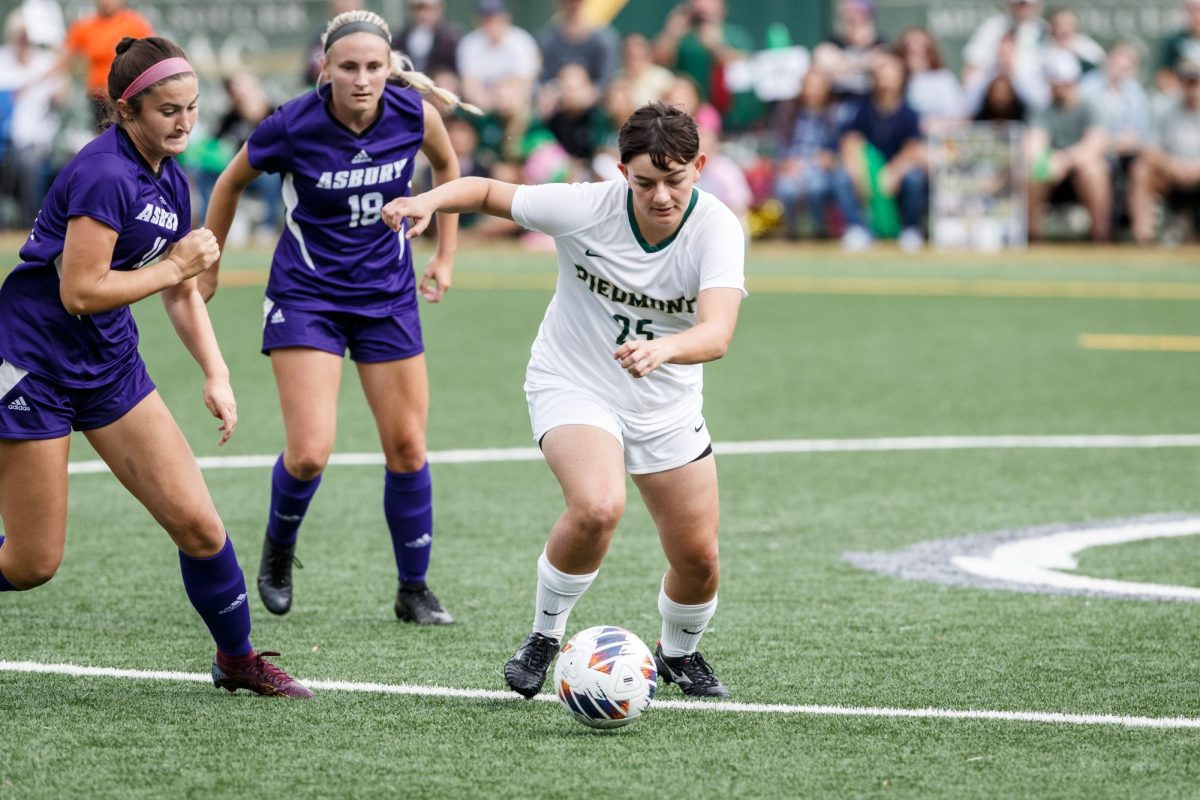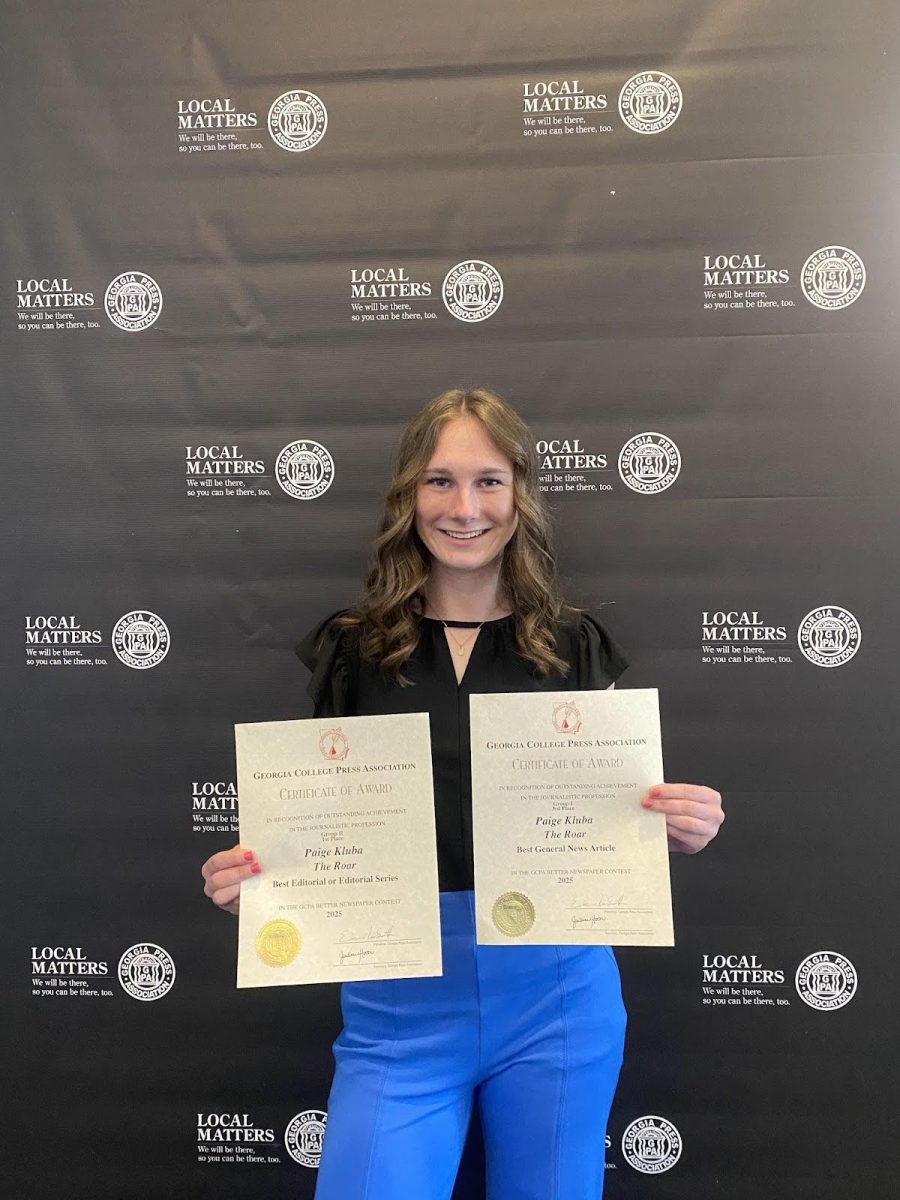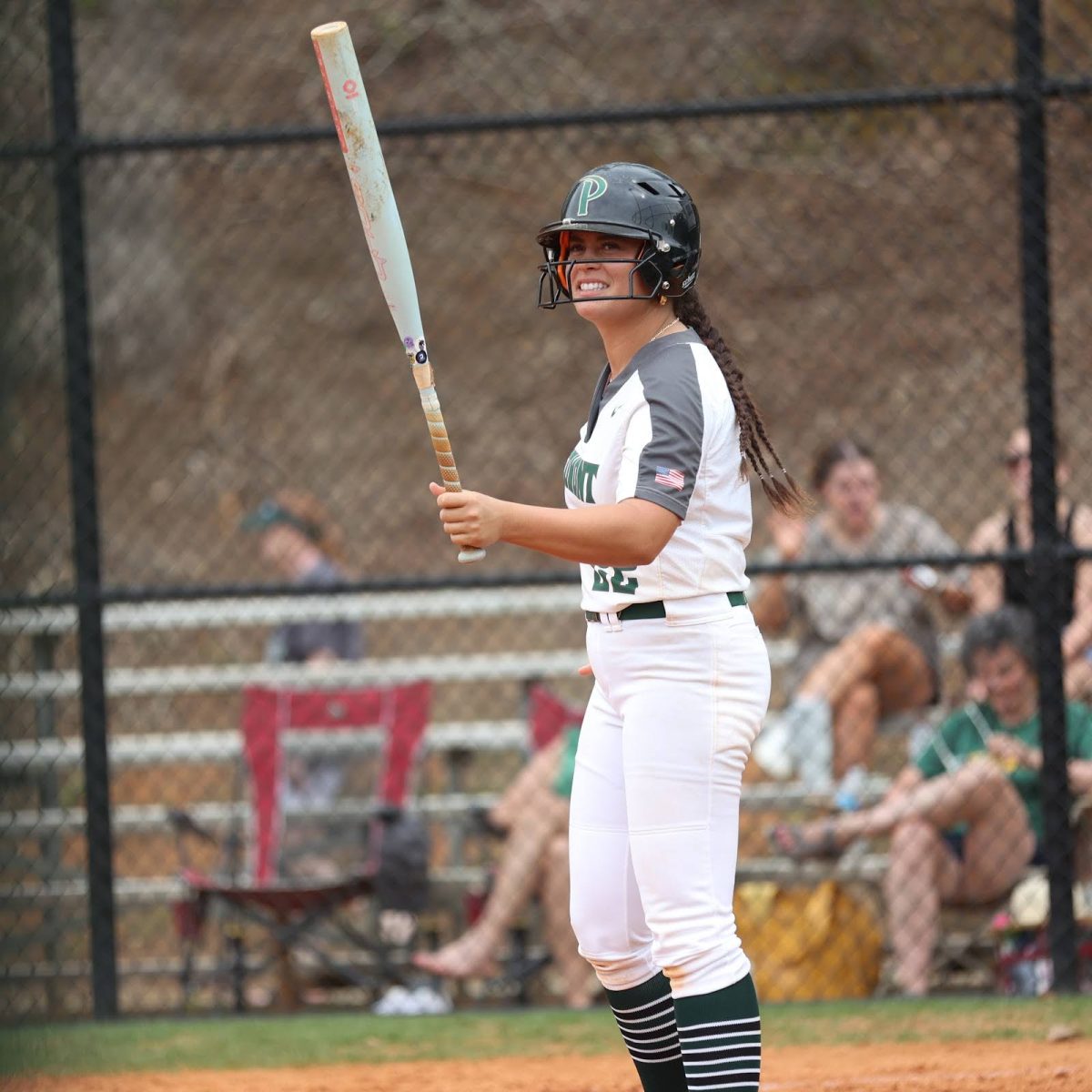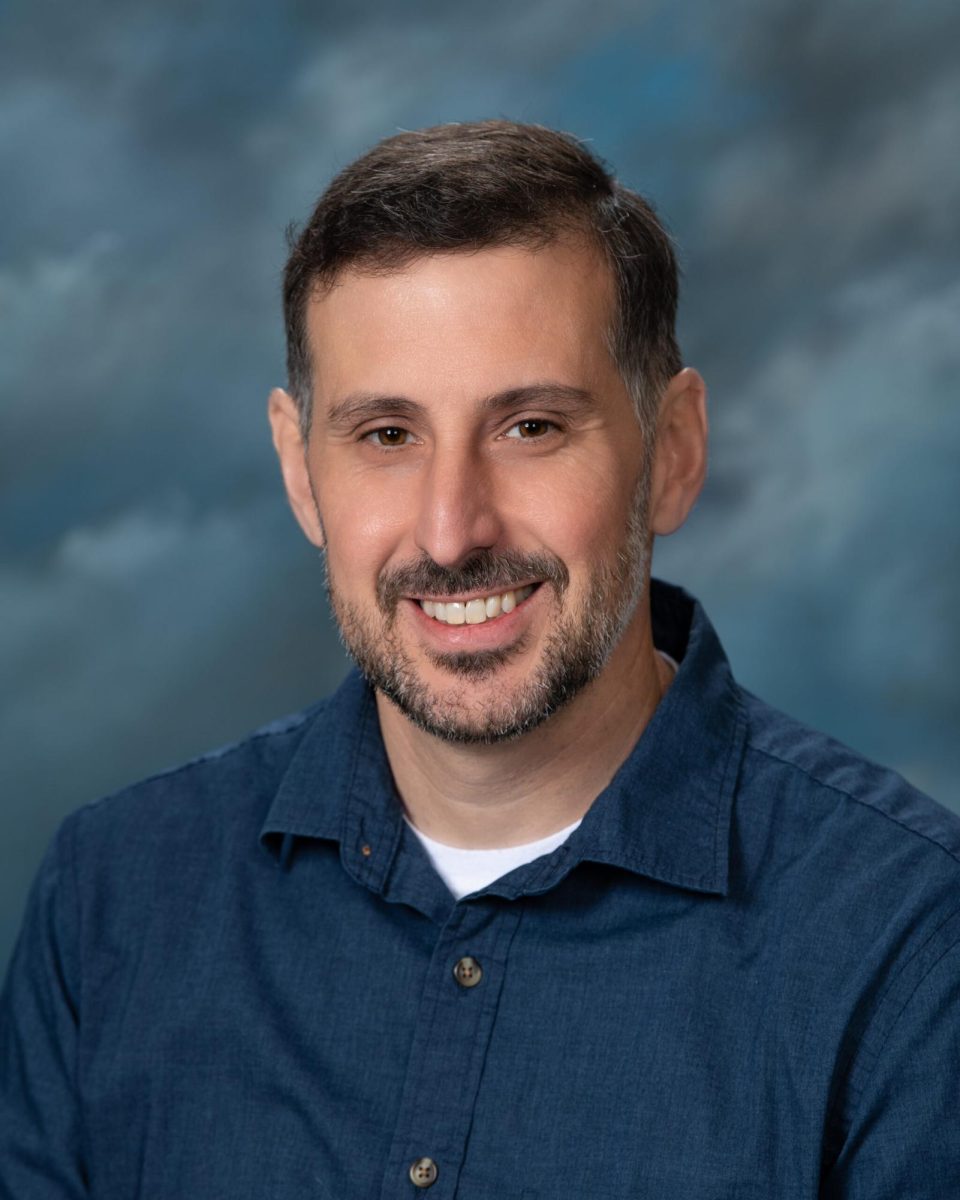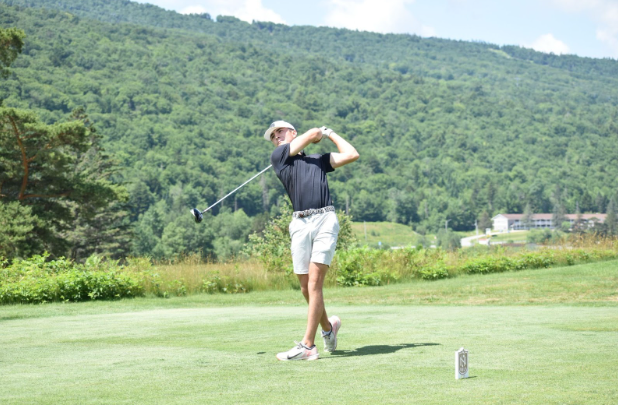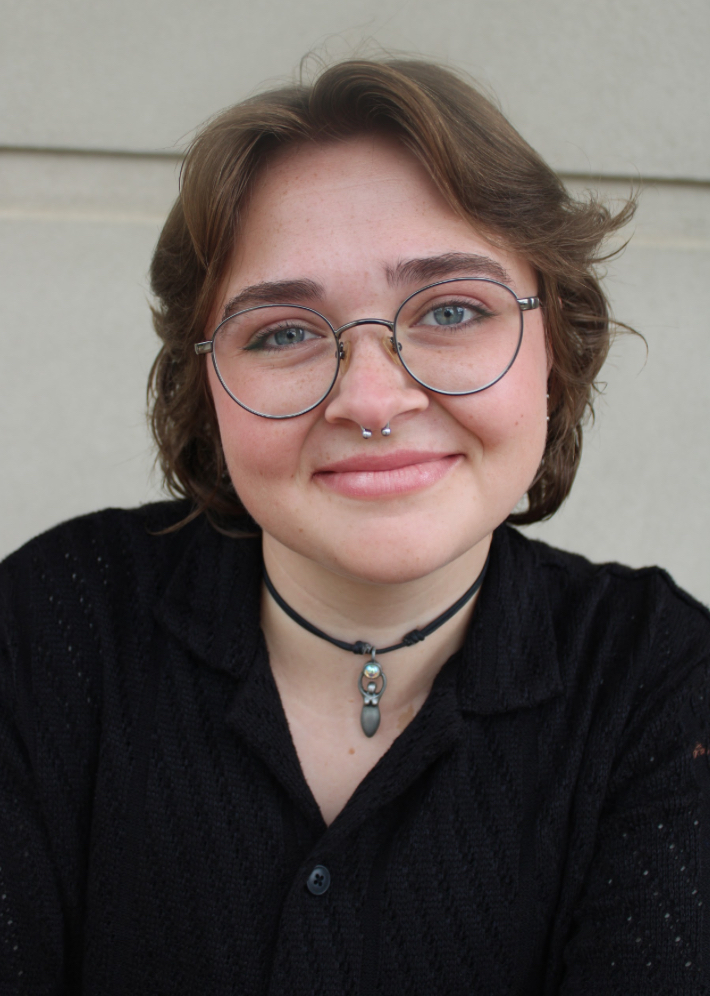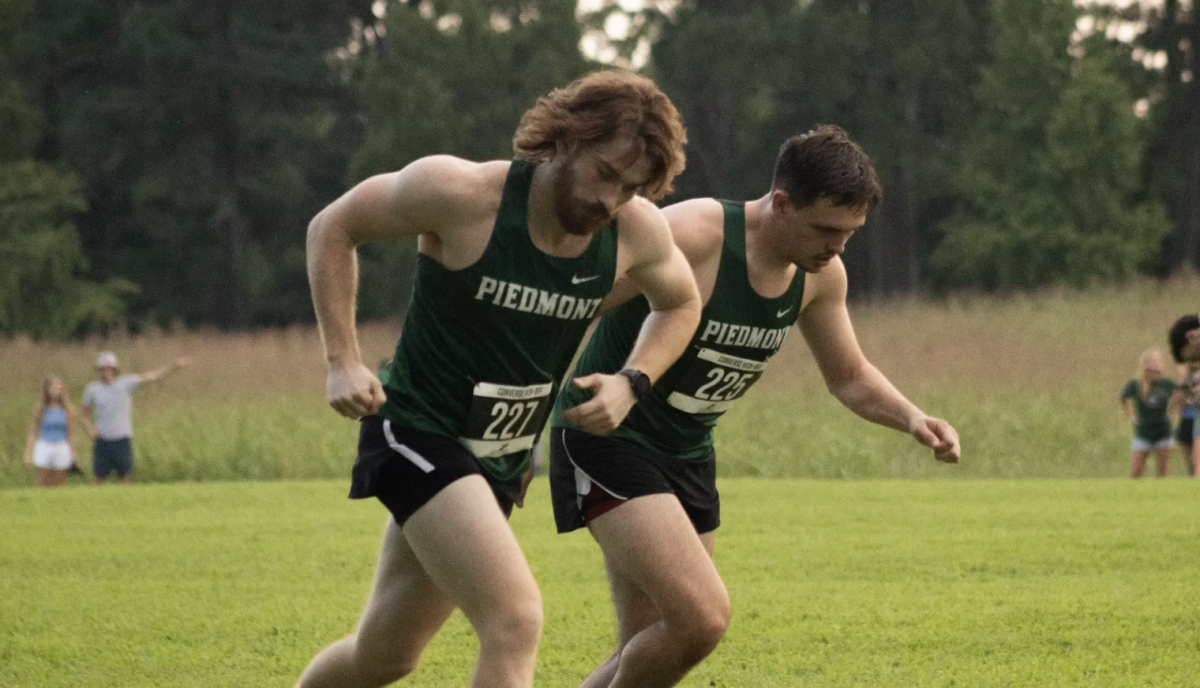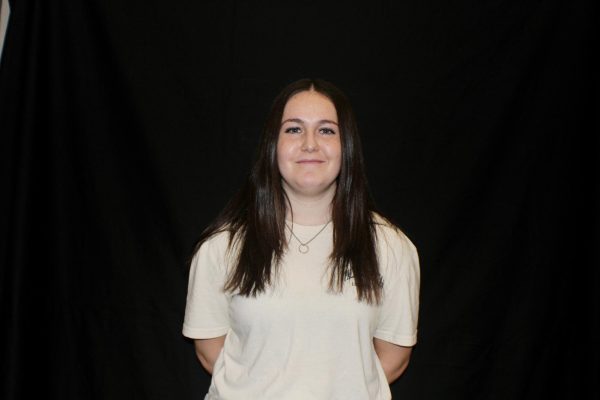MG Gallarelli, a senior double major in psychology and neuroscience at Piedmont University, competed on the women’s soccer team all four years of their collegiate career.
“I chose psych because I took AP psych in high school, and I enjoyed it,” said Gallarelli. “Neuroscience came from the recommendation of Dr. Friedline. At the time, I was taking a lot of classes with him, and he pointed out I already had many of the neuroscience requirements for majoring, so I thought, why not?”
When outside the classroom and juggling two majors, Gallarelli found themselves spending a lot of their time on the soccer field. They grew up playing soccer all their life. “I’ve played every level of competition up through collegiate,” said Gallarelli.
Gallarelli identifies as a nonbinary transmasculine person and shared that a specific challenge they have faced in their collegiate experience thus far has been navigating being trans in a collegiate setting, especially within the competition.
“I’m on the women’s soccer team when I don’t identify as a woman,” said Gallarelli. “It’s a little weird, especially in the past two years when I started making medically physical changes. Specifically, with the NCAA, it was an issue. I have been wanting to start testosterone for a couple of years now, and the rules and regulations within the NCAA were holding me back. Our athletic trainer at the time, Matt McKinney, was beneficial about the situation. He found out exactly what I needed to do if I decided to go that route while in season. But, with how strict the NCAA is with even prescribed medication, I chose to wait until after my last season on the team.”
This decision to wait until after soccer became mentally taxing on Gallarelli. They shared, “I was still in a body that didn’t necessarily match how I felt.”
Continuing to play was also a struggle for Gallarelli. Gallarelli underwent masculinizing chest surgery in the spring of 2023. Gallarelli’s senior soccer season began the following fall. They wanted to be able to play and compete as this was their last chance to play a season before they graduated, but it was different for them than it was in prior seasons.
“The surgery I had was a major surgery,” said Gallarelli. “The recovery was tough, but I wanted to be able to get back on the field for my last season. It was awesome, though; I was looking more how I wanted to. I was willing to deal with the complications and recovery that came with my surgery because I would rather have that overall happiness in the long run.”
While most were supportive and accepting of Gallarelli’s transitioning, many weren’t so accepting and kind.
“I was misgendered a lot,” said Gallarelli. ” I love my team and wouldn’t want to compete with anyone else, but some were malicious. I relied on my friends a lot when I would be misgendered on the field. They did a great job correcting and reminding others to use my correct pronouns. A couple of times, I found myself calling teammates out in the locker room because, at times, some people didn’t seem to care or try to gender me correctly. I told them you don’t have to agree with me, but you will respect me.”
Gallarelli has shared they have educated and helped many understand their pronouns and their journey transitioning thus far. They like to keep an open mind when having these more challenging conversations with others. “I love having those conversations and when people feel comfortable enough to ask questions when they’re curious,” said Gallarelli.
Gallarelli finished out their last season of soccer and is preparing for graduation in the next few months. Their plans after graduation include moving to Asheville, NC, and attending graduate school.
When asked what advice they would give aspiring student-athletes, they said, “Take everything with a grain of salt and be open to new experiences.”


